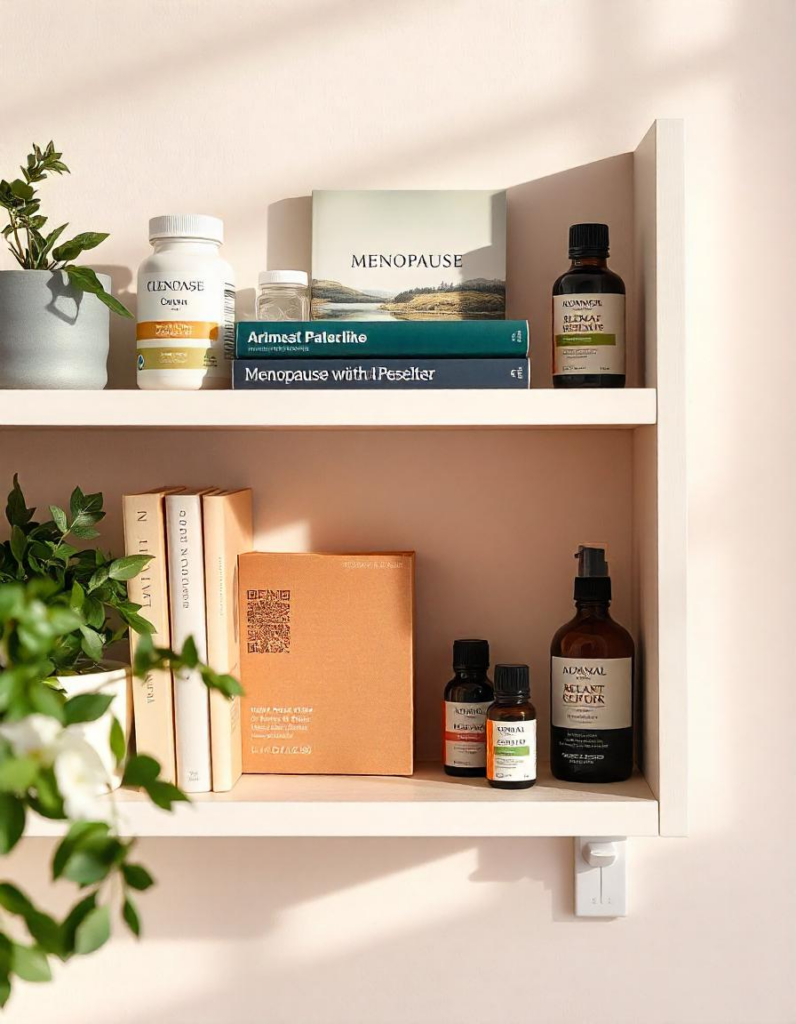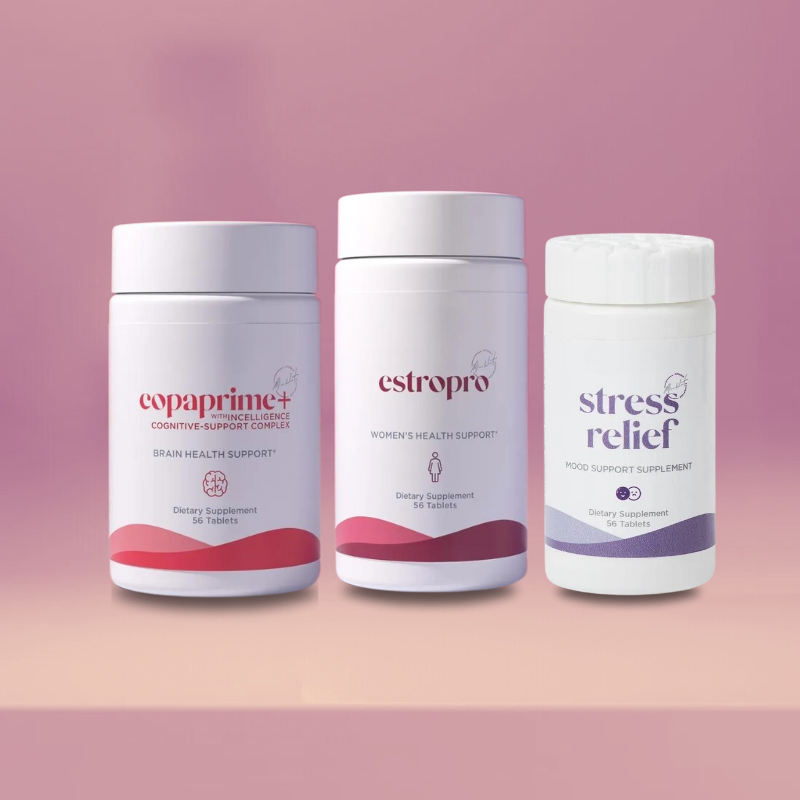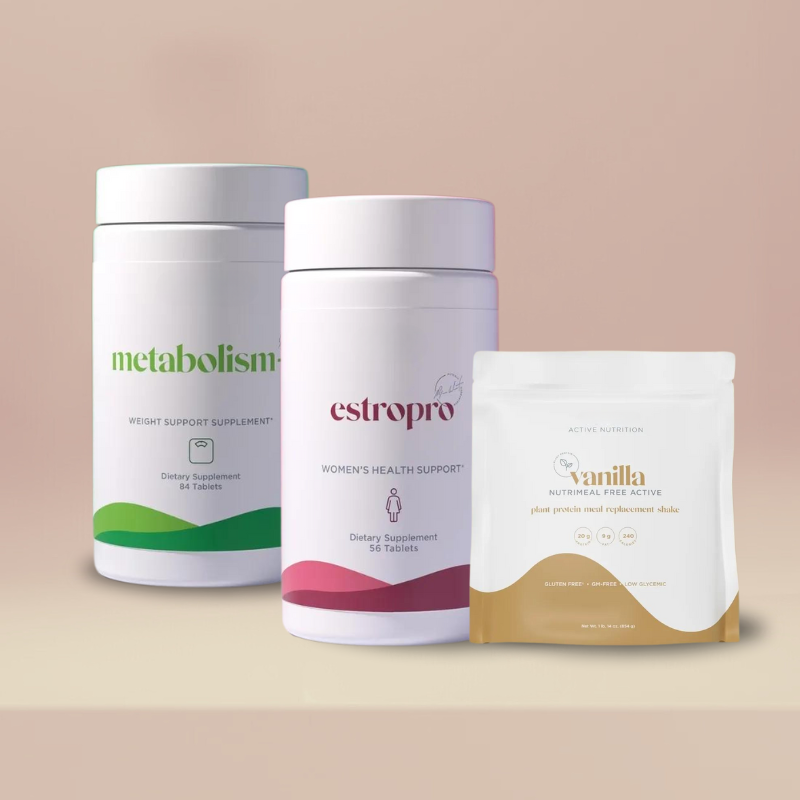Choosing the best supplements for menopause can greatly enhance your ability to manage symptoms during this transitional phase. Menopause affects each woman uniquely, but there are some common symptoms such as hot flashes, mood swings, insomnia, weight gain, and bone health concerns. While lifestyle factors like diet and exercise play a crucial role in managing these symptoms, supplements can be a powerful ally. Let’s explore the essential nutrients, how to choose quality supplements, and tips for personalizing your approach to supplements.
Below, I will also be sharing The Best Supplements and Vitamins I LOVE and Recommend for Menopause Wellness!
The Importance of Quality in Menopause Supplements
When it comes to supplements, quality truly matters. Not all supplements are created equal, and choosing low-quality products can be more harmful than beneficial. Poor-quality supplements may contain harmful additives, fillers, or even ineffective ingredients.
Here’s why you should prioritize quality:
- Purity: High-quality supplements are often free from artificial additives, binders, and chemicals.
- Efficacy: Premium brands typically use bioavailable forms of nutrients—those that are easier for your body to absorb and use.
- Safety: Reputable brands will often have third-party testing for quality and potency to ensure you’re getting what you’re paying for.
Look for certifications like NSF, USP, or GMP, which signify that the supplement has met specific standards.
Source: U.S. Pharmacist
How to Identify High-Quality Supplements
Choosing the best supplement for menopause goes beyond just grabbing a bottle off the shelf. Here’s how to ensure you’re selecting high-quality products:
- Check for third-party testing: Look for products that have been tested by independent labs for potency, purity, and contaminants.
- Review labels carefully: Focus on active ingredients and ensure the product doesn’t contain unnecessary fillers or binders.
- Avoid relying solely on whole-food-based supplements: While the idea of “natural” whole-food-based supplements may sound appealing, they aren’t always better. Extracting pure vitamins from plants often requires significant processing and may involve chemical solvents. Additionally, the bioavailability of some synthetic nutrients, like folic acid, is often superior to that of their food-derived counterparts. What matters most is the chemical structure of the nutrient and how effectively your body can absorb and utilize it.
When selecting supplements, focus on those that prioritize purity, potency, and bioavailability.
Source: Ask The Scientists

Understanding Natural vs. Synthetic Supplements: What to Know When Choosing the Best Supplements for Menopause
When choosing the best supplements for menopause; it’s important to understand the difference between natural and synthetic options and how they impact quality and efficacy. The distinction often raises questions about which is better for supporting your body during menopause, but the truth is more nuanced.
Natural VS. Synthetic
- Source Misconceptions: There’s a common misconception that natural vitamins, derived directly from plants, are inherently superior to synthetic ones made in a lab. In reality, the chemical structure of a vitamin determines its effectiveness, not its source.
- Purity and Potency: Synthetic vitamins can often be as pure and effective as their natural counterparts. For example, folic acid—a synthetic form of folate—is better absorbed by the body compared to food-based folates, which require complex processing to become bioavailable.
For supplements to exceed dietary-supplement requirements, factors like potency, purity, stability, and safety are prioritized over whether an ingredient is natural or synthetic. Natural sources are preferred when all factors are equal, but synthetic sources may be used to ensure higher bioavailability and cost efficiency.
Source: Ask The Scientists
Key Nutrients for Menopause: What to Look For
During menopause, the body experiences hormonal changes that can lead to symptoms like hot flashes, fatigue, and mood swings. Key nutrients such as calcium (for bone health), vitamin D (for calcium absorption and mood regulation), magnesium (to manage stress and improve sleep), and vitamin B6 (for mood support) are essential. Herbs like red clover can help alleviate hot flashes. Adaptogens such like ashwagandha can help manage stress and boost energy.
For more detailed information on these nutrients and herbs, check out our blog, “Vitamins, Minerals, and Herbs for Menopause” for further insights!
Tailor Supplements to Your Menopause Symptoms
Support your menopause journey with tailored supplements that address your unique symptoms. I listed down below the best supplements and vitamins I LOVE and recommend for menopause wellness! These high-quality products are specifically designed to target a variety of menopause symptoms, from hormonal balance and bone health to stress management and cognitive support:
1. For Hormonal Balance
For relief from hot flashes and night sweats, EstroPro offers targeted support to help regulate fluctuating hormones.
2. For Bone Health
Protect against osteoporosis and maintain bone density with MagneCal, which combines calcium, magnesium, and vitamin D for optimal absorption.
3. For Stress and Mood Support
Adaptogens like ashwagandha and vitamin B6 can improve mood swings, reduce fatigue, and ease anxiety. Consider Stress Relief and MagneCal for enhanced relaxation and restful sleep.
4. For Menopause Middle (Belly Fat)
Support metabolism and weight management with Metabolism+, designed to balance energy and promote fat metabolism.
5. To Reduce Brain Fog
Enhance focus and clarity with CopaPrime+, a cognitive-support supplement to help combat memory and concentration challenges.
To learn more about these supplements and how they can support your menopause journey, visit my Supplements Page or book a FREE consultation with me to discuss your specific needs.
Common Mistakes When Choosing Supplements
When navigating the vast supplement market, it’s easy to make mistakes. Here are some common ones to avoid:
- Over-supplementing: Too much of certain nutrients can be harmful. For example, excessive calcium supplementation can increase the risk of kidney stones. Stick to the recommended doses and consult a health care professional.
- Misunderstanding “natural” vs. “synthetic”: Just because a supplement is labeled “natural” doesn’t mean it’s automatically better or safer. Always check the ingredients list of purity.
- Ignoring brand transparency: If a brand is not clear about its sourcing, manufacturing processes, or testing protocols, that’s a red flag. Choose brands that are transparent and trustworthy.
When to Consult a Professional?
A one-size-fits-all approach doesn’t work when it comes to supplements. When choosing the best supplements for menopause, take into consideration that every woman experiences menopause differently, so it’s vital to consult with a healthcare provider, such as a holistic nutritionist (like me) or your physician, to determine which supplements are right for you. Personalized advice will help you avoid unnecessary supplementation and ensure you’re targeting your unique symptoms effectively.
Blood tests can be an excellent tool to check for deficiencies, so as your healthcare provider about testing for key nutrients like vitamin D, B12, and magnesium levels.
How to Research Supplement Brands
Choosing the right brand can make all the difference. Here’s how to research supplements:
- Check for third-party testing and certifications. Reputable brands will have their products tested for potency and safety.
- Review customer feedback: Read testimonials from other women who have used the product to see their results.
- Look for clinical studies. Some supplement brands provide links to studies showing the efficacy of their products, which adds a layer of credibility.

Timing and Dosing Tips
How you take supplements can impact their effectiveness. Consider these tips:
- Fat-soluble supplements like vitamin D are best taken with a meal containing fat for optimal absorption.
- Magnesium is best taken at night as it can help with relaxation and sleep.
- Follow dosing recommendations—more is not always better!
Interactions and Safety Concerns
While supplements can be incredibly helpful, it’s essential to ensure they don’t interact with any medications or other supplements you’re taking. Always inform your healthcare provider about your supplement regimen. For example, high doses of calcium can interfere with the absorption of other minerals, like magnesium or iron.
The Role of Diet and Lifestyle
Supplements should never replace a healthy diet but should work in tandem with it. Eating a nutrient-dense, whole-foods-based diet rich in fruits, vegetables, healthy fats, and lean proteins provides your body with the building blocks it needs to function optimally. Consider supplements as an added layer of support during menopause, but focus on nourishing your body through food first.
Key Takeaways When Choosing The Best Supplements for Menopause
Choosing the best supplements for menopause is a highly personal journey, but by focusing on quality, targeting your symptoms, and consulting with professionals, you can find the support you need to thrive during this transformative stage of life. Take a holistic approach by considering diet, lifestyle, and supplements to find balance, relief, and wellness.
P.S. For a more comprehensive solution…
Explore our curated supplement packs; Ultimate Hormone Pack, Perimenopause Pack, or Supplements for Menopause Belly Fat, designed to help manage multiple symptoms effectively.



Ready to take the next step in your menopause wellness journey?
Has this been helpful in guiding you through choosing the best supplements for menopause?
Comment below if you have any questions or need more information on certain topics in the blog. I’m here to help you navigate this transformative stage and find the support that works best for you!
FAQs About Choosing the Best Supplements for Menopause
There isn’t a one-size-fits-all answer, as the best supplement depends on your symptoms. However, some commonly recommended options include:
EstroPro: For balancing hormones and reducing hot flashes.
Magnesium: To ease stress, improve sleep, and support muscle relaxation.
MagneCal: For maintaining bone health.
For managing hot flashes and night sweats.
Consider combining supplements in a tailored pack like the Ultimate Hormone Pack for a holistic approach.
The most effective treatment varies by individual needs. Hormone Replacement Therapy (HRT) is often prescribed for severe symptoms, but for those seeking natural alternatives, herbal supplements like Black Cohosh, Red Clover, and adaptogens such as Ashwagandha can be highly effective. Supplements like EstroPro are also popular for managing hormonal fluctuations.
Yes, supplements can play a vital role in alleviating menopause symptoms and supporting overall health. They provide essential nutrients that may be lacking in your diet, help manage symptoms like hot flashes, mood swings, and bone density loss, and can improve overall well-being. While supplements are not a replacement for a healthy diet, they are an excellent complementary tool during menopause.
The best natural alternatives to traditional hormone replacement therapy include:
Phytoestrogens: Found in Red Clover and Soy Isoflavones, which mimic estrogen in the body.
Adaptogens: Like Ashwagandha and Maca Root, to help balance hormones and reduce stress.
Herbal remedies: Such as Black Cohosh, for hot flashes and night sweats.
Natural options like these can offer relief for mild to moderate symptoms while being gentler on the body than synthetic hormones.





+ show Comments
- Hide Comments
add a comment